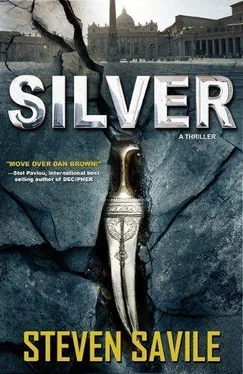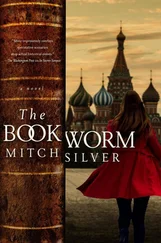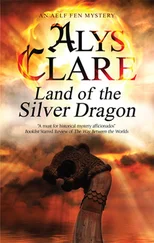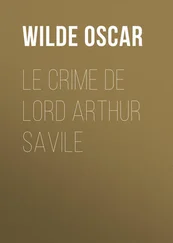Steven Savile - Silver
Здесь есть возможность читать онлайн «Steven Savile - Silver» весь текст электронной книги совершенно бесплатно (целиком полную версию без сокращений). В некоторых случаях можно слушать аудио, скачать через торрент в формате fb2 и присутствует краткое содержание. Жанр: Триллер, на английском языке. Описание произведения, (предисловие) а так же отзывы посетителей доступны на портале библиотеки ЛибКат.
- Название:Silver
- Автор:
- Жанр:
- Год:неизвестен
- ISBN:нет данных
- Рейтинг книги:4 / 5. Голосов: 1
-
Избранное:Добавить в избранное
- Отзывы:
-
Ваша оценка:
- 80
- 1
- 2
- 3
- 4
- 5
Silver: краткое содержание, описание и аннотация
Предлагаем к чтению аннотацию, описание, краткое содержание или предисловие (зависит от того, что написал сам автор книги «Silver»). Если вы не нашли необходимую информацию о книге — напишите в комментариях, мы постараемся отыскать её.
Silver — читать онлайн бесплатно полную книгу (весь текст) целиком
Ниже представлен текст книги, разбитый по страницам. Система сохранения места последней прочитанной страницы, позволяет с удобством читать онлайн бесплатно книгу «Silver», без необходимости каждый раз заново искать на чём Вы остановились. Поставьте закладку, и сможете в любой момент перейти на страницу, на которой закончили чтение.
Интервал:
Закладка:
Rome was actually breathing easy again, as though its time in the spotlight had passed. It had survived. There had been losses, horrible losses, but it had survived. Now it was another city’s turn. They had suffered enough.
If he had been one of the unholy trinity-Mabus, Akim Caspi, or Miles Devere-he would have punished them for their presumption. He would have hit Rome again just to prove that no, they hadn’t suffered enough. He would tell them when they had; they would not tell him.
Noah thought about the note he had found on the “suicide bomber”: We have tested your faith. Today we break it. All of the messages had been enigmatic, laced with the vagueness of prophecy, but they had all come back to faith. The Church. The only two attacks to date, despite the promises of so much more, had come in Italy, home of the Catholic Church, and Germany, the country where the Pope happened to be on pilgrimage. The crowds outside St. Peter’s were proof that killing one man would not break a world’s faith. They had flocked to the square to show their love, and to show the terrorists their faith was not broken.
All of which meant something else was coming.
Something that would shake the very foundations of their unwavering faith.
Something that would make them all ask the same question their Messiah had: My God, my God, why hast thou forsaken me?
And Abandonato was the key.
That was the truth.
It had to be.
And he couldn’t find the damned man anywhere.
Abandonato didn’t want to die.
He didn’t want to be a martyr to the truth
At the outset he had believed fervently enough that he not only wanted to do it, he had volunteered to be the one to go out into the square and burn. But that had changed. It wasn’t that he didn’t believe anymore. It wasn’t that he didn’t question. Solomon had found him and bound him to his cause with the truth of the testimony. He had been the first to translate it. No one else knew what they had. The Testimony of Menahem ben Jair, grandson of Judas Iscariot, founder of the Sicarii assassins, the world’s first fundamental terrorists. It was as close as anyone would ever get to a firsthand account of what happened in Gethsemane.
The Gospel of Matthew, written in Greek, not Hebrew or Aramaic, had to have been written after the fall of Jerusalem in AD70, possibly as late as AD100, and Mark, believed to be the oldest of the Gospels, also references the sacking of the Temple of Jerusalem, marking it as at least AD70; whereas Menahem’s testimony of would have been written prior to the mass suicide of the Sicarii in AD73 and couldn’t be any older. The Sicarii were at their height during the Jewish War, from the sacking of the Temple in AD70 to their suicide at Masada. That testimony was almost certainly Document Zero, the first account of the death of Judas. Unlike the Gospels, it showed a tragic hero, a man making the ultimate sacrifice. Of course the Gospels existed for a very different reason. They sought to deify the man Jesus, to prove him divine and elevate him above all others.
The Christ in ben Jair’s testimony was far from divine. He was a man with all the flaws of a man. Ben Jair didn’t claim that Judas was God’s son, far from it. The Judas Iscariot in his story was another very normal man. The testimony spoke of love and friendship and of sacrifice. And it was Judas, ben Jair’s grandfather, who had made the sacrifice, knowing what it would do to his family, but not really understanding how it would be warped and twisted through time. How could he have? How could ben Jair, really? They were living in that time. Reading it now, interpreting it, it was impossible not to read the document through the filter of our understanding, to apply our modern sensibilities to the reading.
The original Gospels didn’t want any of that story. And not just because of its contradiction, but fundamentally to suggest Iscariot’s death was murder over suicide would throw so much else into doubt. Judas would no longer be damned to eternity but elevated, and what of Matthew who had held the rope? Or Mark, Luke and the others who had cast the stones? What of their mortal souls if they went from enlightened beings carrying the teachings of Jesus Christ to the world and became murderers? What, then, was the truth of their ministry?
It undermined everything he had been taught to believe.
Solomon’s words had been sympathetic. He had asked again and again what was the Messiah’s destiny? Again and again, talkig about the line of David and the reconstruction of Israel. It wasn’t a message of war. It was all about peace. About a place in the world for people who had suffered for two and a half thousand years. And when he talked, he laid so much of that hardship at the door of Rome.
It was the Romans who had occupied his country for years, the Romans, who, following the bar Kokhba revolt, had killed more than half a million Jews, razed fifty fortified towns and nine hundred and eighty-five villages. It was slaughter, and all because Hadrian sought to root out Judaism; more atrocities in the name of religion. Hadrian prohibited the Torah, outlawed the Hebrew calendar, systematically hunted and killed Judaic scholars. And still he wasn’t content. Hadrian sought to purge the name Judaea from public consciousness. His first step was to burn it off the map, naming the ancient country Syria Palaestina after the Philistines, the ancient enemy of the Jews. And since that time it had been known as Palestine, not Judaea, not Canaan, or Iudaea. It was the Romans who had created Palestine and took the holy city of Jerusalem away from them. Hadrian renamed it Aelia Capitolina and forbade Jews from entering it.
This was not a proud history.
How could he not be sympathetic to the horrors perpetrated against these people in their homeland? How could he not feel a historian’s distant, diluted guilt? He would have to be a monster not to. In his head he heard the mocking cries and laughter of the Herodians and the Roman legionnaires calling Jesus King of the Jews.
It was a long time ago, he told himself, trying to make it less vile by adding the filter of time. It was difficult when Rome itself was still full of reminders of Hadrian’s rule, the Pantheon, even his mausoleum, Castel Sant’Angelo. His touch was everywhere in modern Rome.
Abandonato was a scholar.
He had dedicated his life to discovering the truth.
And then it had all started happening and the truth had stopped feeling so important. People started suffering. And it became real. It was different when it was academic, when it was conjecture, a puzzle, something to occupy his brain.
All of Solomon’s talk of a messiah coalesced into murder on a grand and sickening scale.
He hadn’t agreed to that. He hadn’t sought to be a party to it.
And now all he could do was think, and all he could think was that soe truths were better left hidden.
That was what he was supposed to do now. Remain hidden.
When Nick Simmonds had given him the small plastic sheath and bade him hide it amongst the coals in the fire grate of the Sistine Chapel two weeks ago he hadn’t known what he was really being asked to do.
Now he did.
Now he understood.
He knew what he had to do, even if it meant surrendering his own life. It was a sacrifice he would have to make. He couldn’t live, knowing more deaths were on his hands. He wasn’t a murderer any more than the Apostles were. They had been saving their friends immortal soul. That was the only way the testimony of ben Jair made sense. They were angry, hurt, but they knew he could not live with his betrayal, and suicide would forever bar him from the kingdom of heaven. So they had saved him. Or so Abandonato believed.
But did Gianni Abandonato have it in him to save anyone?
Читать дальшеИнтервал:
Закладка:
Похожие книги на «Silver»
Представляем Вашему вниманию похожие книги на «Silver» списком для выбора. Мы отобрали схожую по названию и смыслу литературу в надежде предоставить читателям больше вариантов отыскать новые, интересные, ещё непрочитанные произведения.
Обсуждение, отзывы о книге «Silver» и просто собственные мнения читателей. Оставьте ваши комментарии, напишите, что Вы думаете о произведении, его смысле или главных героях. Укажите что конкретно понравилось, а что нет, и почему Вы так считаете.












